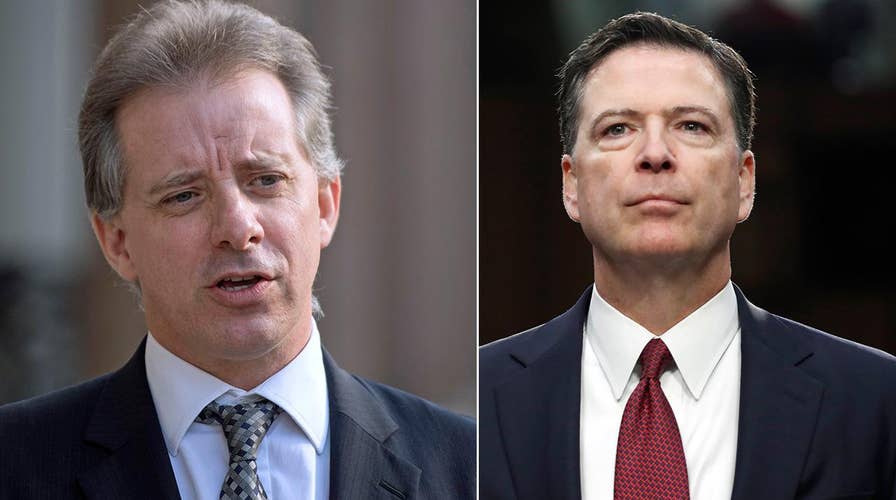U.S. intelligence officials have been interfering in American politics since the middle of the 2016 election campaign through their favorite media and politicians. The narrative has been that, according to classified information, the Trump team concerted with Russia to steal that election and then has obstructed investigations into that collusion.
The information on which this narrative is allegedly based exists in documents held by the intelligence agencies and the Department of Justice. Officials, however, have answered requests for evidence of such collusion and obstruction by citing the information’s classified status. Release, they argue, would compromise intelligence’s “sources and methods.”
On Wednesday, February 14, the CIA took this argument to its logical conclusion by arguing in federal court that it has the right to continue exempting information from the Freedom of Information Act despite having previously given that information to favorite reporters. Thus it admitted its longstanding practice of violating laws regarding the disclosure of classified information, and showed that political gamesmanship is today’s governing criterion for security management in Washington.
Today, America is encumbered by questions regarding why, when, and to what extent the U.S intelligence agencies surveilled the Trump campaign and presidency; what this surveillance revealed and did not reveal, as well as questions concerning the actions of high intelligence and law enforcement officials involved in these matters. For almost two years, as officials on all sides of these questions have made their cases by allegations, and sometimes by criminal leaks concerning the documents at the heart of all this, they have diminished our confidence in our system’s integrity and fostered enmity among us.
If intelligence officials are willing to share classified information with the press, then American voters should be able to see it, too.
It is past time to cut these losses by releasing all relevant documents to the public, classification notwithstanding. Any damage to U.S intelligence that might ensue from such insights into “sources and methods” as these documents convey is tiny compared to what officials’ gamesmanship continues to inflict on America’s body politic. Besides, their leaks to their favorite media outlets have already confirmed - in direct violation of the laws, notably section 798, 18 U.S, Code - what the informed public already knows about the targets and technologies involved. Here are some examples:
The legality of requests to surveil Carter Page under FISA, turning as it does on the FBI’s degree of candor to the court about the requests’ basis, is the least of the issues and the most easily resolved by releasing the requests themselves and all documents that went into their preparation. Knowing what the surveillance actually yielded - the “take” as it is called - is far more important, because it will show what those who made the requests were really interested in seeing, other than Mr. Page’s inherently meaningless doings. What was the point of it all? National security? Politics? Stupidity?
It is even more important to make public the so-called incidental “take” from surveillance carried out by FBI and NSA on Trump associates in contact with Russians under Section 702 of FISA. This includes stuff on former National Security Adviser Michael Flynn. If “incidental” collection turns out to have been the operation’s principal objective, then the officials who carried it out were criminally perverting the law. Whether they were doing this or just doing their jobs can be ascertained easily enough by releasing all the take from those operations, as well as documents on what they did with every item in it.
Which high intelligence officials briefed the New York Times and Washington Post on their conclusion that U.S communications intelligence showed that the Trump campaign had collaborated with the Russian government? By so doing, they revealed the fact that the U.S government was listening in on conversations before transmission as well as in transit. Diaries of several officials’ activities and communications during days preceding these publications of relevant stories in the media should be made public.
What do former FBI director James Comey’s notes on his conversations with President Trump say? Comey himself arranged to deliver them to friendly reporters. Now the FBI refuses to release them to Congress. Why treat them as national secrets rather than as the partisan political instruments they are? Perhaps because some hope that differences between them and Trump’s recollection might be a basis for charges against Trump?
Abuses of secrecy have been covering for our intelligence and justice systems’ focus on parochial interests and neglect of the public services for which they exist. Organizations that have been unable to discover where the money that financed 9/11 came from or who mailed the anthrax letters, that paid no attention to warnings about the Boston Marathon bombers and the other “known wolves” who strike us, that neglected multiple warnings from the wives of Russian spies and from people who have flagged mass murderers - such organizations have forfeited the stewardship of secrecy.
The president of the United States has the executive responsibility to decide what secrecy is and is not in the national interest. Time for him to exercise it.

